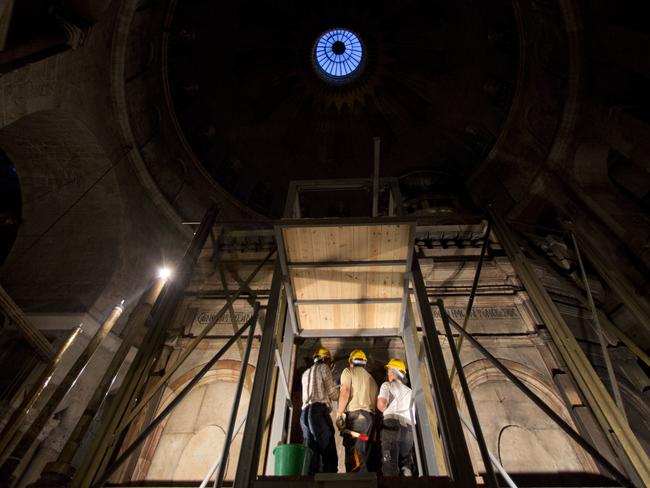Urgent work has begun to stablise the Tomb of Christ inside Jerusalem’s Holy Sepulchre
JESUS would be spinning in his grave. Centuries of neglect has left the chapel built over the 1600-year-old tomb of Christ in Jerusalem teetering on the edge of ruin.
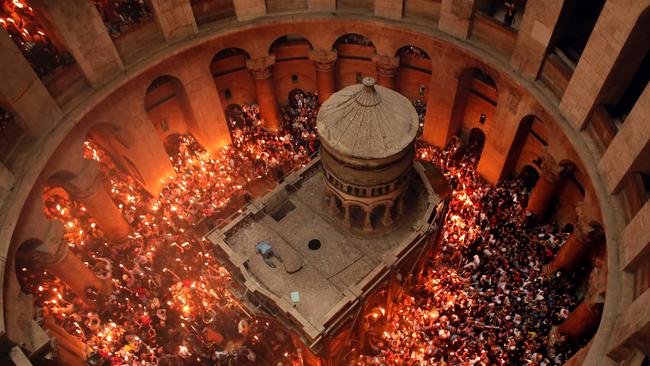
JESUS would be spinning in his grave! Centuries of neglect has left the chapel built over the 1600-year-old tomb of Christ in Jerusalem teetering on the edge of ruin.
Now urgent repair work has begun.
The ornate edifice is buckling under its own weight.
First built above a burial cave as a tourist attraction in the Dark Ages, the stone blocks are now caked in a millennia’s worth of soot from incense burners, candles and offerings.
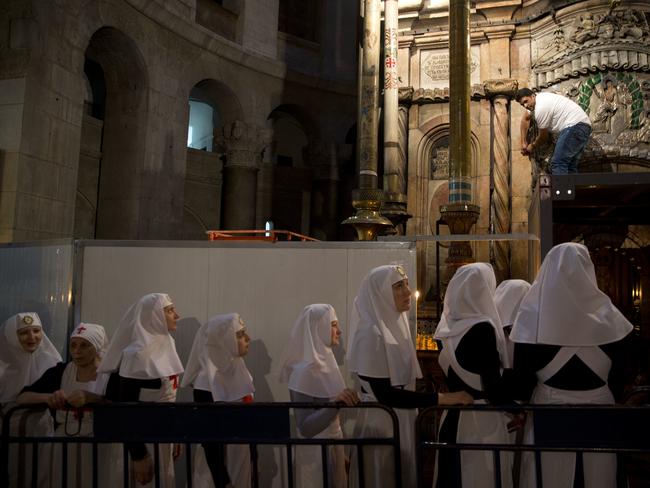
Archaeologists say there is evidence the grotto had been revered as the burial place of Christ since the 4th Century.
The shrine itself — known as the Edicule — sits within a much larger basilica known as the Holy Sepulchre. This imposing Medieval edifice is crammed full of chapels, Crusader tombs — and elaborate icons.
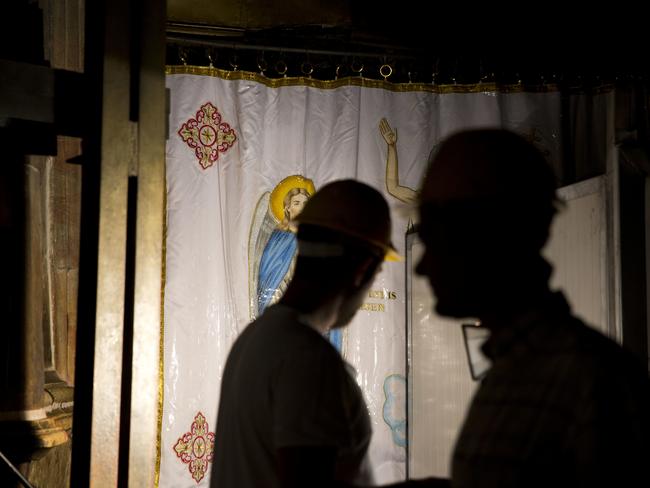
It’s also not the first such shrine. There were likely at least three others, two of which were destroyed in religious wars.
It’s the first work to be done on the current incarnation since it was rebuilt after a severe fire in 1810. Nobody has seen what’s inside since.
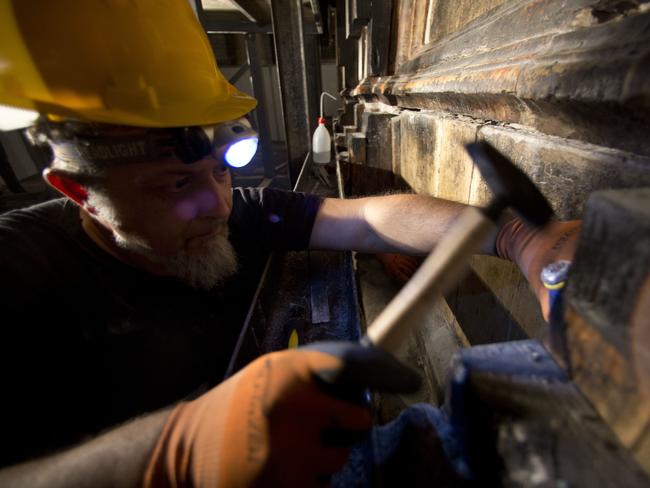
The $4.5 million restoration is expected to take between eight and 12 months and will involve titanium bolts being inserted among stonework to restabilise the structure.
It took decades of squabbling among the many Christian factions that lay claim to the site, but now a team of conservation experts from National Technical University of Athens have finally made a start.
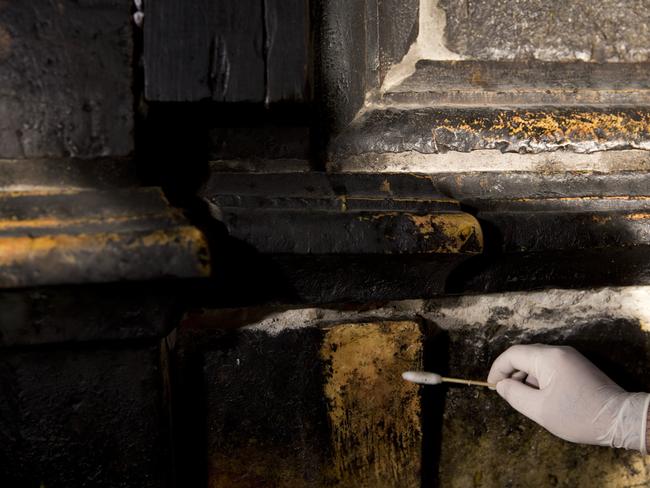
Drones have been flown within the enormous hall of the Holy Sepulchre to photograph the shrine and the arched cupola on its roof from every angle.
These images have revealed a deep fracture in the structure’s stonework.
“We equally decided the required renovation was necessary to be done, so we agreed upon it”, said the Rev. Samuel Aghoyan, the top Armenian official at the church told Associated Press.

Catholic Franciscan monk Athanasius Macora said disputes had prevented any changes to the 200-year-old structure.
“I personally would have liked to maybe contemplate some alternative to simply restoring the current structure. But because the status quo is so conservative in its nature, we had to more or less accept the fact that there would be no change whatsoever to the current structure, and it would be restored as it is now,” he told Associated Press.
The Greek renovators have committed to keeping the holy site open to tourists while undertaking their work.
